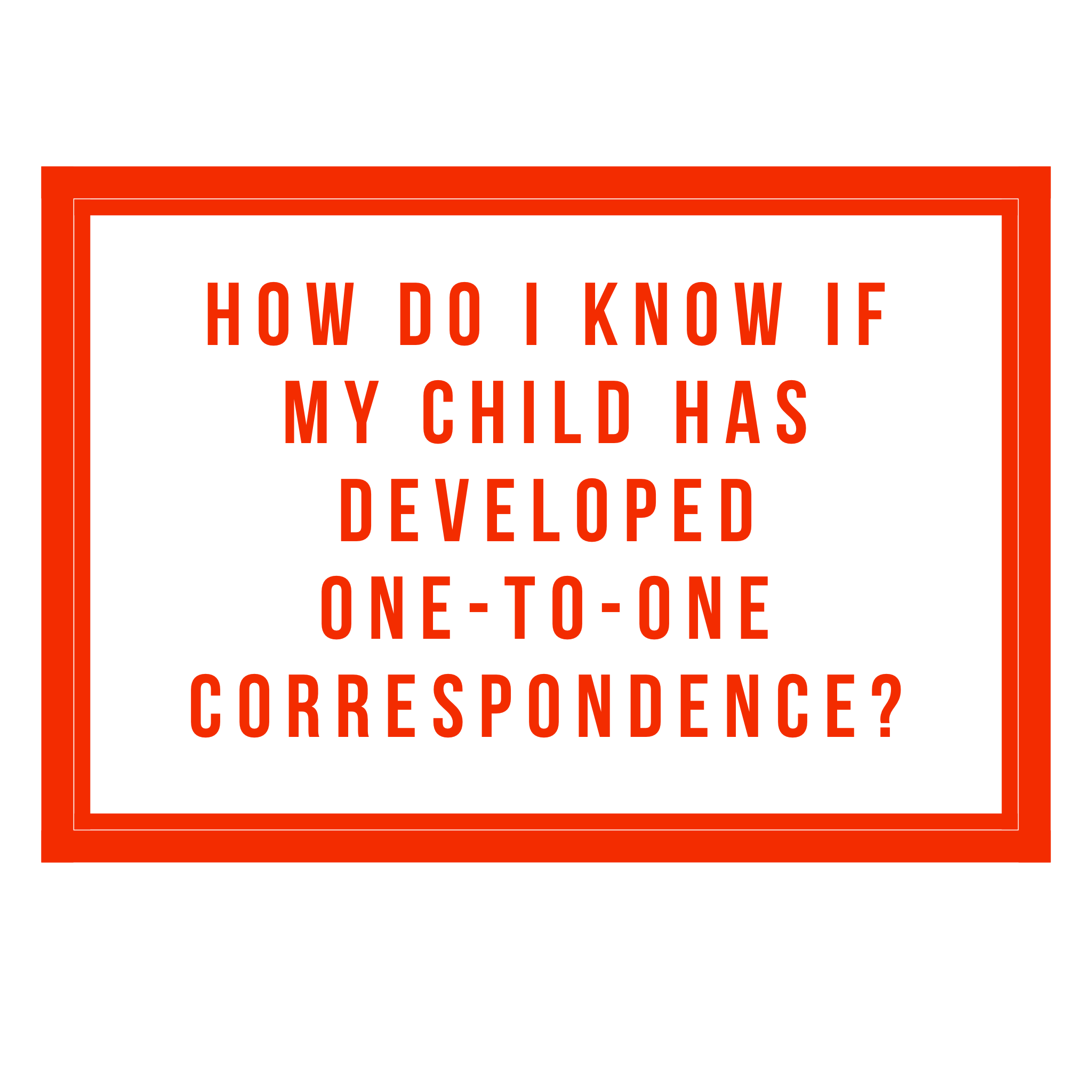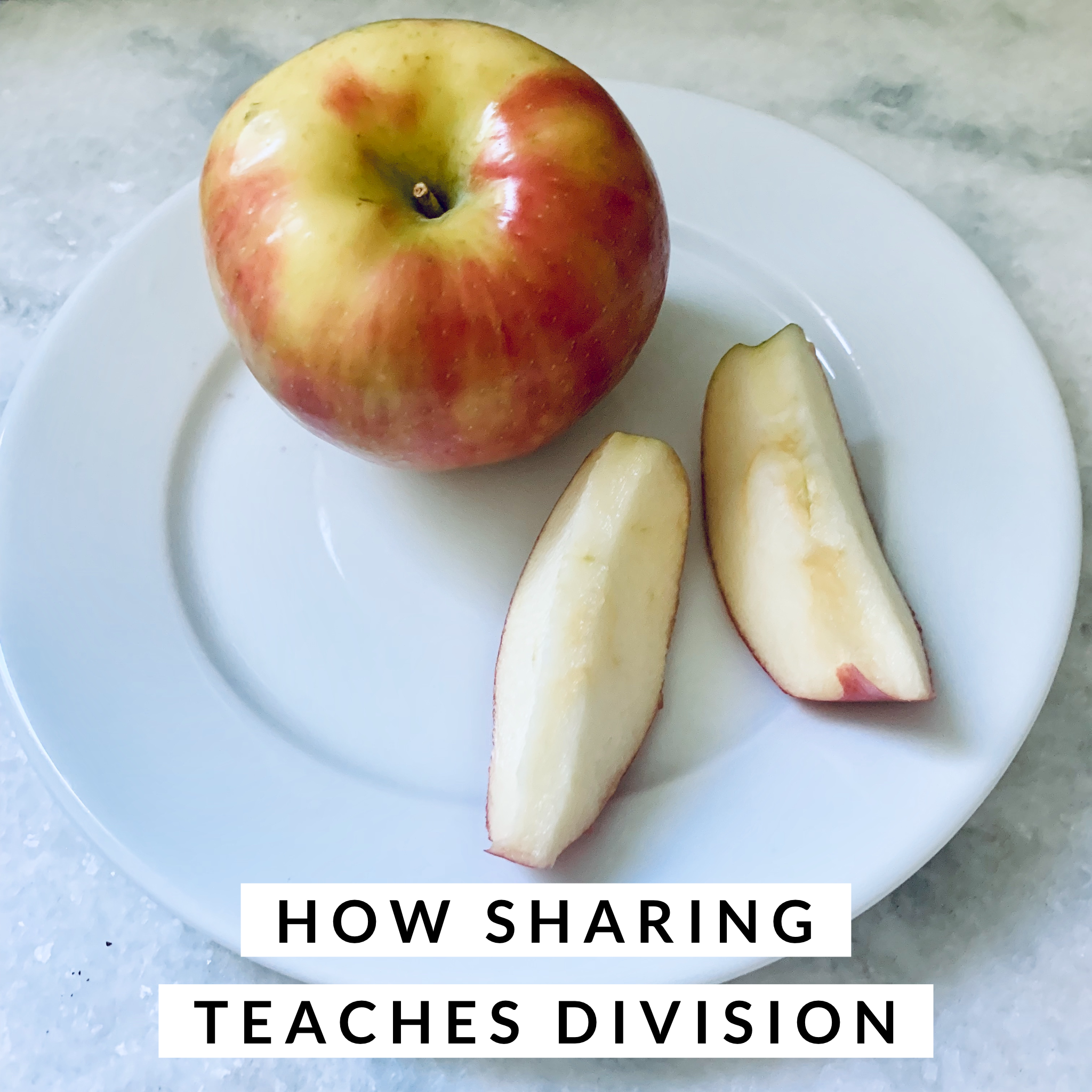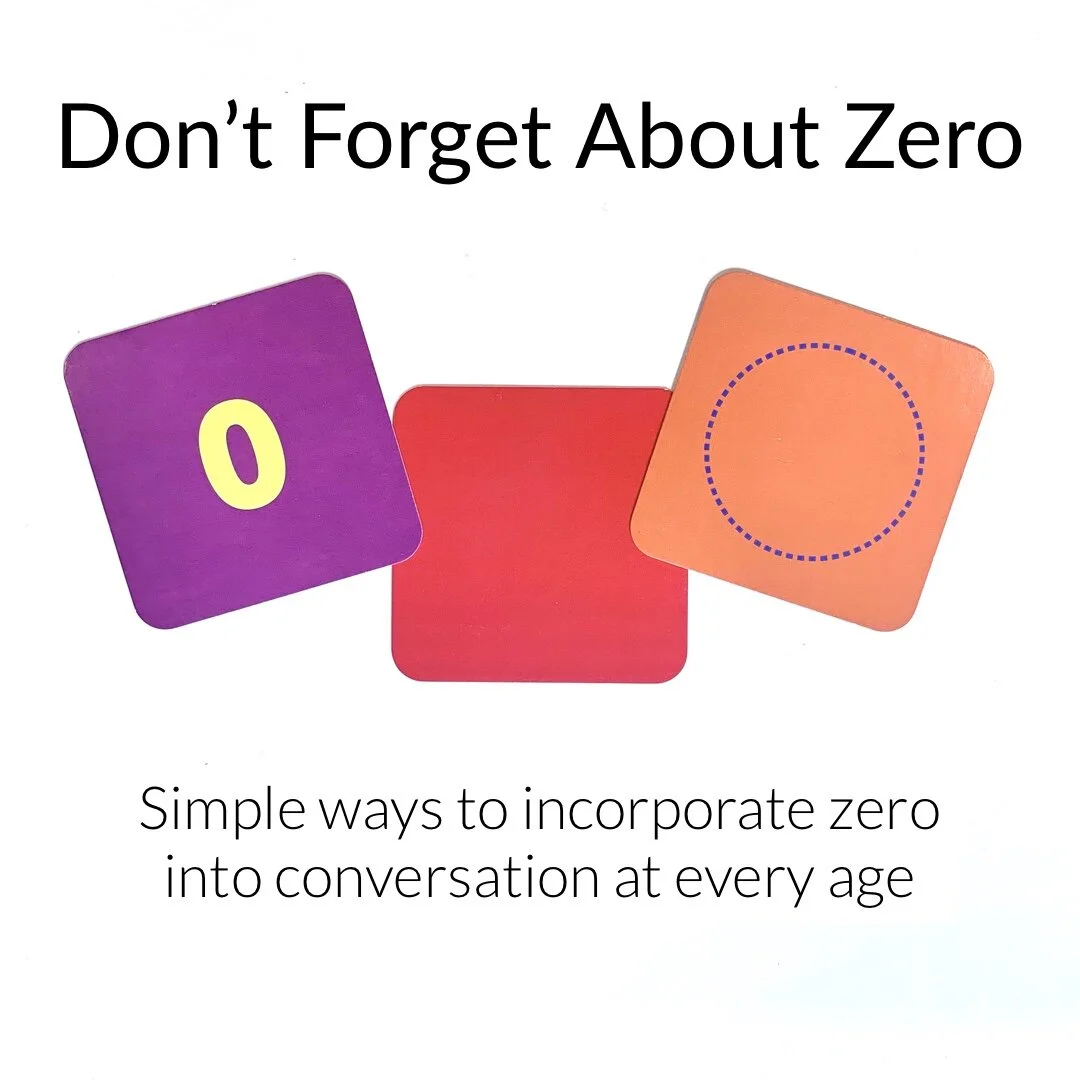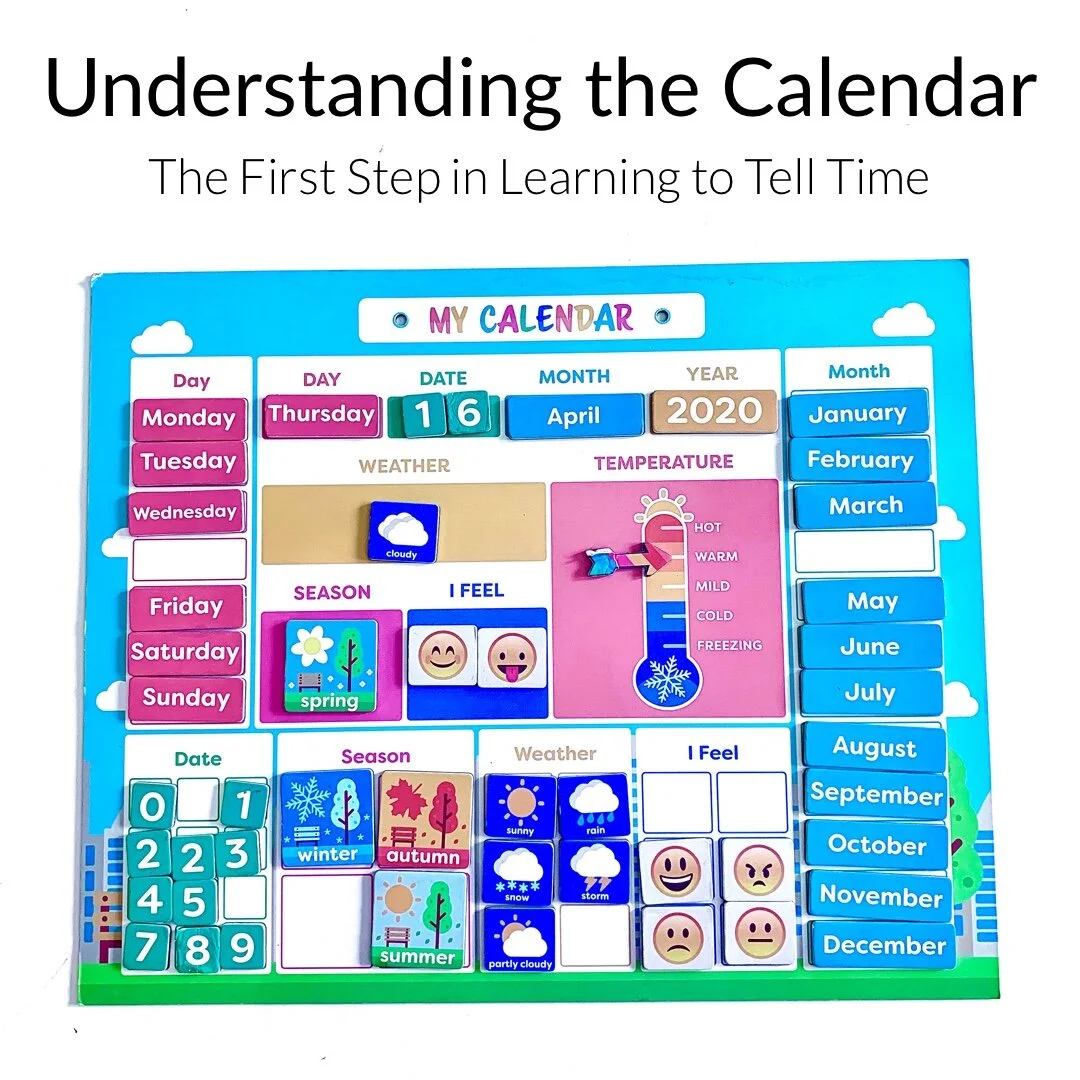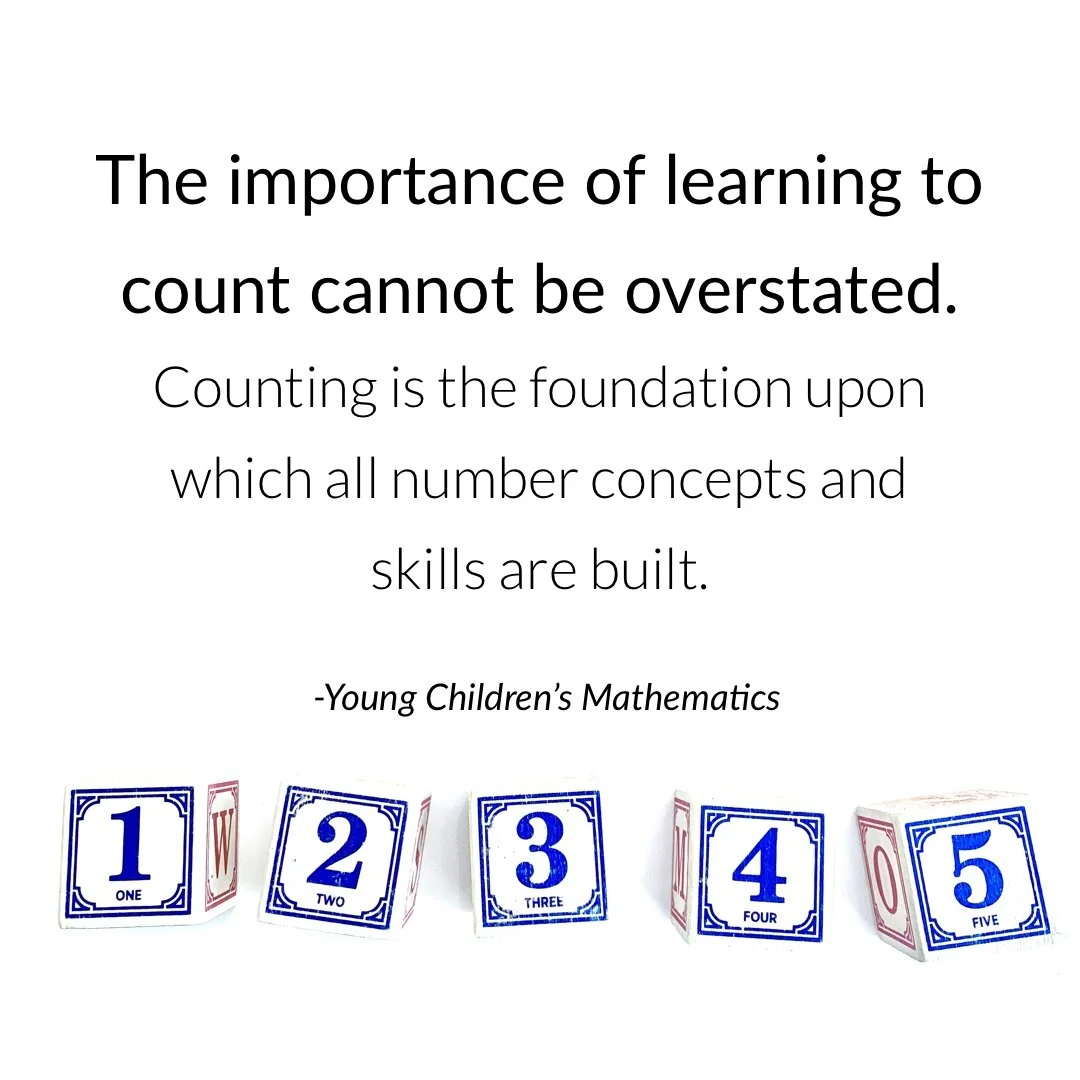Information for Parents and Early Childhood Educators
How Do I Know if My Child Has Developed One-to-One Correspondence?
One-to-one correspondence is an essential component of becoming fluent counters. But knowing that your child should develop this skill is very different than knowing if your child has developed it.
Learning to Count by 10s
Without an understanding of what the counting sequence represents, reciting “10, 20, 30, 40, 50, 60....” is as useless to your child as being able to recite “2, 7, 15, 23, 38.”
Is It Time to Start Skip Counting?
Helping your child learn to skip count can be confusing for parents. In this post, I’ll address how you know when your child is ready to start skip counting.
Counting Collections
Children love to collect things! Whether it’s a collection of 3 objects or 30 objects, allowing time to count those collections is one of the BEST ways you can support your child’s early math development!
Why Children Need to Experience Math in the Real World
When our children go to school, they will encounter real-world problems (aka word problems) on an almost daily basis. Starting as young as kindergarten, our children will be asked to apply what they know about math to real-world settings.
How Sharing Teaches Division
We all want to raise kind children who know how to share with others. But did you know that teaching your child how to share also teaches them basic division?
Don't Forget About Zero
If one is the loneliest number, what does that make zero? In early childhood math, the answer is usually—forgotten. Zero is frequently overlooked in early math activities, but children as young as one are beginning to understand the concept of zero.
Number Stories: Joining & Separating
Your child is learning to count increasingly larger groups of objects. Now, you can move their thinking further by incorporating some very simple real-world problem solving. The simplest two to start with are joining and separating. I like to start with these two because the action words are very concrete to young children.
Understanding the Calendar: The First Step in Learning to Tell Time
Did you know that learning the calendar is an early math skill? Before your child can learn to tell time on a clock, they need understand the units of time on a calendar.
There's More to Counting Than Just Counting
Let’s start at the very beginning: COUNTING! You know that we should teach our children how to count. But there is much more to counting than merely reciting the names of numbers.

